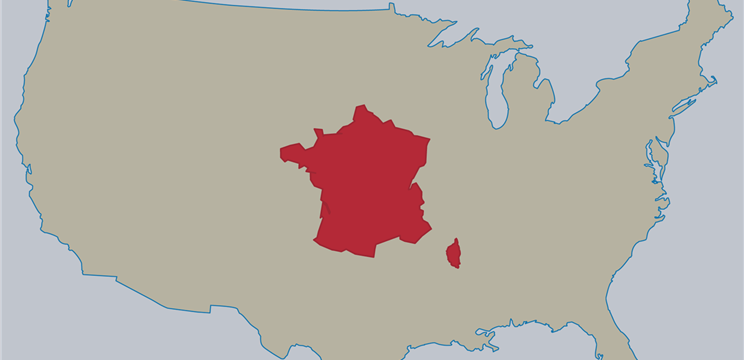American regulators imposed a substantial penalty upon France's largest bank BNP Paribas for doing business with Cuba, Iran and Sudan. The present case showed that crippling a European bank could harm the world’s financial system, as well as a region struggling for growth.
The question of proportionality of penalties as well as reasonableness for America to impose its foreign policy through the financial system is the first to come to mind.
It is true that the French bank’s dealings with and for Sudan (where Osama bin Laden found refuge and the UN’s attempt to stem the bloodletting in Darfur was resisted) lie at the heart of the charges against it. BNP hid a total of $190 billion-worth of dollar-based transactions between 2002 and 2012, according to New York’s Department of Financial Services (DFS), including some involving Cuba and Iran. As they were denominated in dollars, the transactions ultimately had to pass through New York and thus came under its regulatory authority. To disguise their origins, BNP re-routed payments through a network of satellite banks. It was not until 2010 that BNP finally ceased dealing with Cuba and late 2012 with Iran. Throughout the whole process of negotiations, regulatory hearts were hardening unless the denouement happened on June 30th 2014.
The decision was followed by lengthy negotiations which finally led to imposing of almost a $9 billion fine (a sum being bigger than the bank's profits last year), a guilty plea to criminal charges of conspiracy and falsifying records and a suspension of its right to clear certain dollar transactions.
As BNP Paribas considers, it can pay the fine without turning to the markets for money, as it is profitable and well-capitalised. The bank will immediately take a charge of $7.9 billion on top of the $1.1 billion it had already set aside and will freeze dividends at last year’s level. Other sides of the punishment are heavy though. The requirement to plead guilty to a felony is dangerous: some jurisdictions could withdraw BNP’s banking licence and some customers may move elsewhere. Worst of all, the mandatory exclusion from dollar clearing for a year on much of its oil and gas business, forcing it to direct transactions through other banks, is a shock for a bank that plays a key role in international trade.
Both sides appeared to be in discontent. First of all, none of the individuals responsible has faced a legal sanction so far – some were cut in salaries and some were fired; instead, the bank’s shareholders and customers look likely to bear the burden. Moreover, there is a great discontent in Europe, as the present case showed America using the threat of withholding access to its market and currency to force compliance with its own priorities. BNP’s behaviour in doing business with Sudan may have been blameworthy, but in general it did not break European or French laws (though falsifying documents would be a crime anywhere). By eagerly exploiting their authority over dollar-denominated transactions, American regulators are increasing the incentives for international banks to set up a payments system based on another currency.
The worst is over for BNP, however, Société Générale, Crédit Agricole and Deutsche Bank are also believed to be in American regulators’ sights for sanctions-busting.



